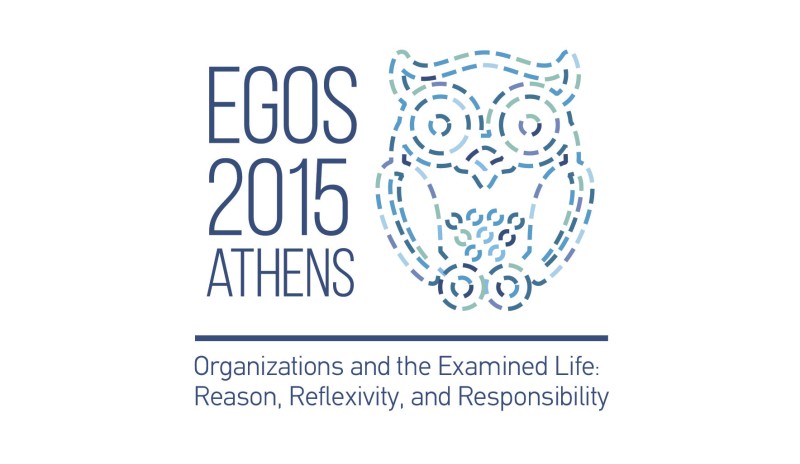Sub-theme 28: Entrepreneurial Design and Designing Entrepreneurship
Call for Papers
The landscape of entrepreneurship research is highly fragmented, due to fundamentally different assumptions about
the purpose, identity and methodology of research (Alvarez & Barney, 2010; Ireland et al., 2005; Leitch et al., 2010).
At the core of this fragmentation lies a tension between retrospective and prospective conceptions of entrepreneurial opportunities
as focal points of research. Although opportunities seem obvious and inevitable in retrospect, they are but uncertain and
ambiguous ideas in prospect (Dimov, 2011).
The former conception has dominated the mainstream research in the
field, calling for testing formal hypotheses related to finite, specified entrepreneurial outcomes. The latter conception,
in contrast, emphasizes the open ended nature of the entrepreneurial process and seeks to elicit the generative mechanism
of the process rather than specify its ultimate realization. While this conception has been gaining a lot of momentum, as
evidenced by the notions of effectuation, bricolage, and opportunity formation, it has failed to assert a requisite logic
of enquiry.
Among entrepreneurship scholars, there is a growing awareness for the need of a more design-oriented
approach towards entrepreneurial phenomena (e.g. Venkatamaran et al., 2012; Sarasvathy, 2003; Van Burg et al., 2008). This
approach acknowledges both retrospective and prospective perspectives. It is particularly suitable for developing evidence-based
tools and solutions as well as for understanding the open-ended, creative nature of the entrepreneurial process. A design-oriented
approach can increase the relevance and usefulness of entrepreneurship research for practice, helping researchers to generate
new concepts and devices, instead of only observing and explaining existing phenomena and systems. A design approach in entrepreneurship
education will also serve to provide entrepreneurs with concepts and tools for developing new ideas, propositions, products
and ventures.
This sub-theme proposes to bring together scholars drawing on design approaches to entrepreneurship.
Questions and themes addressed in this track include, but are not limited to:
- Foundations of entrepreneurship scholarship as a science of the artificial
- What can entrepreneurship theory and research methodology learn from other pragmatic and actionable 'sciences of the artificial', such as architecture and medicine?
- Empirical studies of the sources of design knowledge that entrepreneurs can draw upon, and how they use these in different reasoning processes (e.g., feedback-driven learning) and actions (e.g., effectuation)
- How to design for entrepreneurship (e.g. studies of business incubation environments)?
- Types of designs and design decisions in entrepreneurship (e.g. for creating business models)
- Conceptual explorations and literature reviews of designerly versus entrepreneurial perspectives on, for example, the creative industry
- Empirical studies of the imaginative and future-oriented aspects of entrepreneurship?
References
- Alvarez, S.A., & Barney, J.B. (2010): "Entrepreneurship and epistemology: The philosophical underpinnings of the study of entrepreneurial opportunities." Academy of Management Annals, 4 (1), 557–583.
- Dimov, D. (2011): "Grappling with the unbearable elusiveness of entrepreneurial opportunities." Entrepreneurship Theory and Practice, 35 (1), 57–81.
- Ireland, R.D., Webb, J.W., & Coombs, J.E. (2005): "Theory and methodology in entrepreneurship research." In: D.J. Ketchen & D.D. Bergh (eds.): Research Methodology in Strategy and Management. Research Methodology in Strategy and Management, Vol. 2. Bingley: Emerald Group Publishing Limited, pp.111–141.
- Leitch, C.M., Hill, F.M., & Harrison, R.T. (2010): "The philosophy and practice of interpretivist research in entrepreneurship." Organizational Research Methods, 13 (1), 67–84.
- Sarasvathy, S.D. (2003): "Entrepreneurship as a science of the artificial." Journal of Economic Psychology, 24 (2), 203–220.
- Van Burg, E., Romme, A.G.L., Gilsing, V.A., & Reymen, I.M.M.J. (2008): "Creating university spinoffs: A science-based design perspective." Journal of Product Innovation Management, 25 (2), 114–128.
- Venkataraman, S., Sarasvathy, S.D., Dew, N., & Forster, W.R. (2012): "Reflections on the 2010 AMR decade award: Whither the promise? Moving forward with entrepreneurship as a science of the artificial." Academy of Management Review, 37 (1), 21–33.


